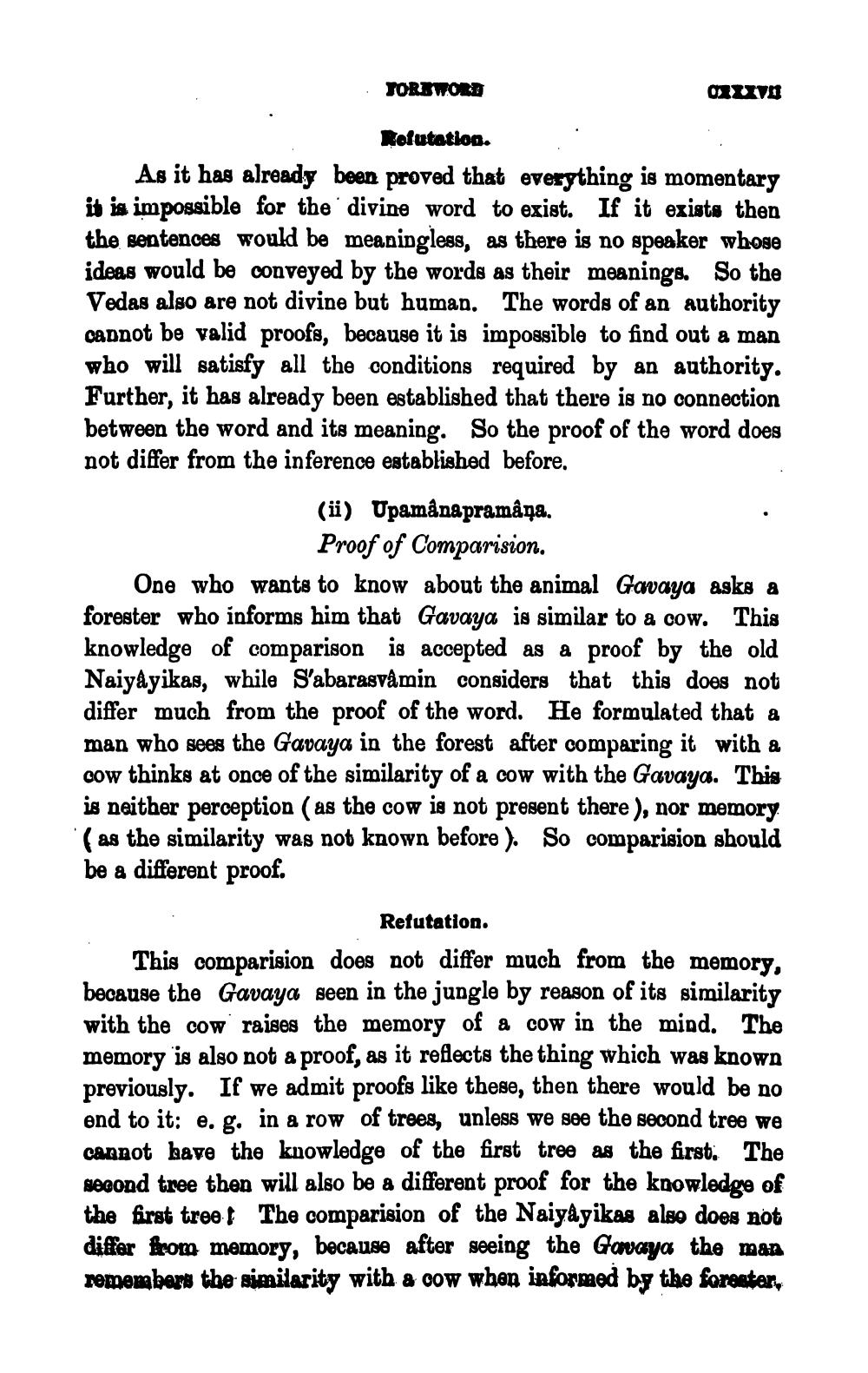________________
· TORSWORD
Rolutation As it has already been proved that everything is momentary it is impossible for the divine word to exist. If it exists then the sentences would be meaningless, as there is no speaker whose ideas would be conveyed by the words as their meanings. So the Vedas also are not divine but human. The words of an authority cannot be valid proofs, because it is impossible to find out a man who will satisfy all the conditions required by an authority. Further, it has already been established that there is no connection between the word and its meaning. So the proof of the word does not differ from the inference established before.
(ii) Upamânapramåņa.
Proof of Comparision. One who wants to know about the animal Gavaya asks a forester who informs him that Gavaya is similar to a cow. This knowledge of comparison is accepted as a proof by the old Naiyayikas, while S'abarasvåmin considers that this does not differ much from the proof of the word. He formulated that a man who sees the Gavaya in the forest after comparing it with a cow thinks at once of the similarity of a cow with the Gavayos. This is neither perception (as the cow is not present there ), nor memory ( as the similarity was not known before ). So comparision should be a different proof.
Refutation. This comparision does not differ much from the memory, because the Gavaya seen in the jungle by reason of its similarity with the cow raises the memory of a cow in the mind. The memory is also not a proof, as it reflects the thing which was known previously. If we admit proofs like these, then there would be no end to it: e. g. in a row of trees, unless we see the second tree we cannot have the knowledge of the first tree as the first. The second tree then will also be a different proof for the knowledge of the first tree. The comparision of the Naiyayikas also does not diffar frono memory, because after seeing the Gavaya the mana remembers the similarity with a cow when informed by the forester,




